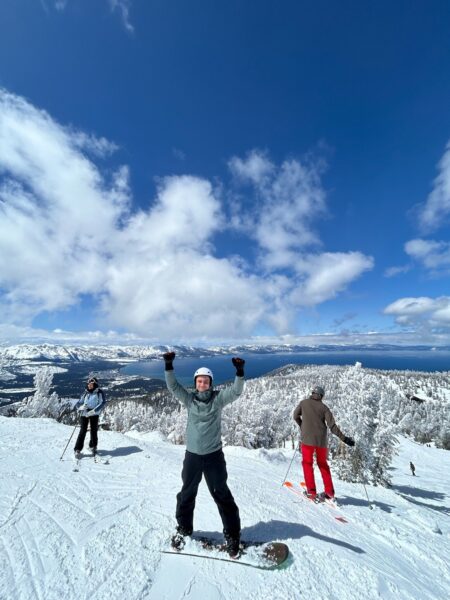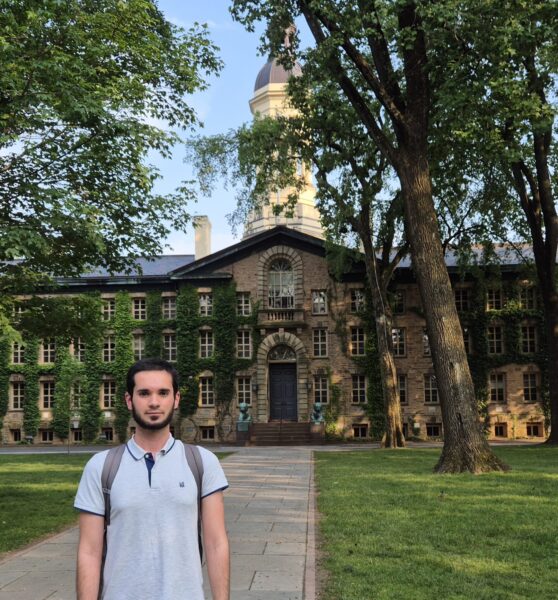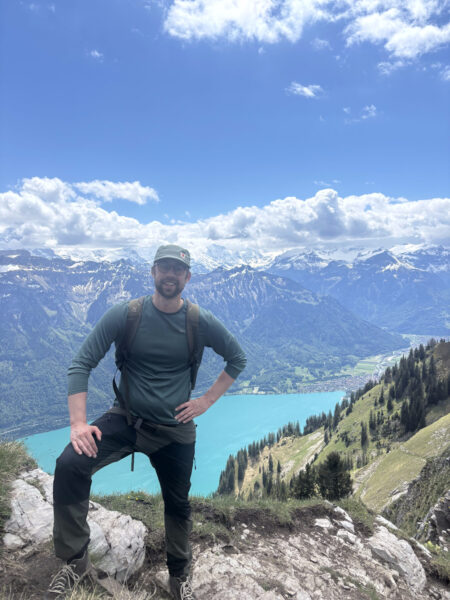All WASP PhD students have the possibility to apply for a short-term visiting researcher position abroad, in the range of one to six months. This exchange program aims to foster meaningful long-term collaborations between researchers at WASP and other well-renowned university research groups abroad.
Exclusive university partnerships:
- Stanford
- NTU Singapore
- UC Berkeley
- Aalto
- MIT
- ETH Zurich
- Caltech
- Mila – Quebec AI Institute
- Imperial College London, WASP Postdoctoral Fellowships – I-X Imperial

Experiencing the world beyond research
For William Ljungbergh, a WASP PhD student working on safer autonomous vehicles, a five-month research visit to UC Berkeley in 2025 became the perfect mix of technical progress, international collaboration, and life experience. Hosted by Wei Zhan and Wenzhao Zheng at the Mechanical Systems Control Lab and Berkeley AI Research (BAIR), William’s visit focused on enhancing the realism and scalability of driving simulators—an essential tool for training and testing autonomous systems.
At Berkeley, the team developed a method to insert new objects into driving simulators in a way that looks and behaves naturally. “This allows us to simulate rare or dangerous driving scenarios that would be hard to capture in real life. It’s a great way to test autonomous systems in a safe and controlled way.”
Although the project fit seamlessly into his existing PhD work, William says the most valuable part of the experience wasn’t just the research itself. “It was also the conversations with people—getting to hear how locals view the world, especially in today’s complex times. And of course, getting to experience California’s nature—from national parks and ski resorts to beaches—was incredible.”
His advice to fellow WASP PhD students considering a stint abroad?
“Go with a clear project plan, maybe even get started before you travel. These visits go by fast, and having a head start really helps. And make sure you explore the country and culture while you’re there. The experience goes far beyond just research.”

Fresh perspectives from Princeton
Sometimes, the best research trips don’t just move your project forward. They change how you think about research altogether. That’s been the case for Stefan Stojanovic, a WASP PhD student who spent three months in 2025 at Princeton University in the Reinforcement Learning Group, led by Professor Benjamin Eysenbach.
About a year ago, Stefan began questioning the direction of his work. With generative AI and large language models making headlines, it felt like reinforcement learning (RL) wasn’t evolving fast enough. He started exploring new ideas, especially self-supervised learning, where agents guide their own learning without external rewards.
He was drawn to the empirical research coming from Ben Eysenbach’s group and wanted to complement his own more theoretical background. Stefan reached out, and soon he was on his way to Princeton. “And let’s be honest,” he adds, “doing research at Princeton is a once-in-a-lifetime opportunity.”
He hopes to continue collaborating with Ben’s group and encourages other WASP students to consider a research stay abroad.
“Don’t overthink it. Just go. Especially if you’re feeling uncertain or stuck. It might be the fresh perspective you didn’t know you needed.”

Collaborating on collision-free robotics
Bernhard Wullt, a WASP PhD student focused on motion planning for robot manipulators, spent three months in 2025 with the Dynamical Systems and Control group at ETH Zurich, hosted by Andrea Carron. The visit offered a valuable opportunity to deepen his understanding of robot control and build meaningful collaborations with researchers working at the forefront of his field.
Before his stay, Bernhard had already been developing learning-based approaches for generating convex, collision-free regions in a robot’s planning space. His goal was to integrate these into classical path planning algorithms to help eliminate computational bottlenecks. At ETH, the focus shifted to controlling robot dynamics—specifically, how to ensure that a robot’s motion stays within those collision-free regions generated by the planner.
The most valuable part of the visit? “To collaborate with the people in the group.” The connections he made during the stay have already grown into something lasting.
To others in the WASP graduate school considering a research stay abroad, Bernhard offers practical advice:
“Make sure that there are PhD students in the group who work on stuff similar to you. This will probably increase the chance that you will collaborate on something.”


